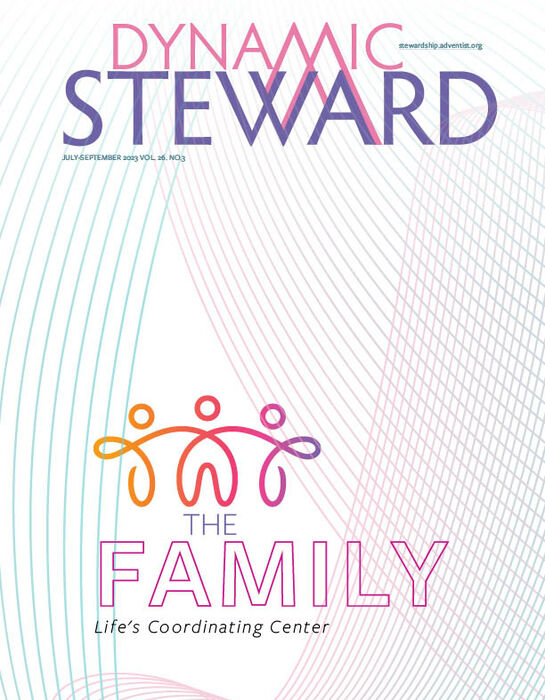Stepping into Marriage: Learning to Handle Finances Together
Marriage is comparable to constructing a high-rise building for eternity, to be sustainable for a lifetime and beyond. Considering what is at stake, these words of Jesus deserve attention: “For which of you, intending to build a tower, does not sit down first and count the cost, whether he has enough to finish it” (Luke 14:28, NKJV). So it is with the formation of a couple, which leads to a family through parenthood.
Money, the lack of it or how to manage it within the couple and the family, is a “make-or-break” factor. It ranks among the most critical aspects of the couple’s life. If not properly managed, it may very often cause conflict, trouble, and stress. It is, therefore, of utmost importance to prepare to-be couples to learn to pull resources together for sound management of their combined finances after marriage.
This article aims to equip future couples with the tools to handle the financial issues of their future life together—to make it a success for this side and the other side of eternity.
The Potential Conflicts
Conflict is inherent to couples—two different characters with different educational and family backgrounds who are planning to live and achieve goals together. Here are some scenarios describing the potential conflicts that may arise if the fiancés do not primarily discuss and decide together how they will manage their finances after marriage.
- Both partners are extravagant and quick to spend. The couple runs the risk of quickly finding itself short of money during the month—which will lead to a stressful situation of mutual blame when confronted with an immediate financial need or an emergency. It will inevitably result in an attitude of blame toward the other, who would have allegedly wasted the money away on futile things.
- One partner is economical, and the other is extravagant and lavish. The economical partner risks withdrawing from the other if they think their partner’s management of the family’s finances is risky for the couple. This conflicting situation may result in a circumstance where one would want to manage his financial incomes, which in turn leads to more complicated conflicts when settling certain common expenses within specific payment timelines. An example would be buying airplane tickets for the holidays when the extravagant partner assigned to this expense does not have the necessary funds because of overspending on other items.
- Two economical couple partners. At first sight, this situation may appear to be without any problem and can even be considered the ideal one for a happy couple’s life, but this may not be the case. One of the couples can be economical up to becoming miserly, tightfisted, mean, and stingy. Under these conditions, even the smallest expenses of the other can be viewed as being excessive. Reproaches fly, and life can become unbearable for the one with the real sense of economy.
The above scenarios and their associated risks are usually exacerbated by two other situations. Firstly, the partner who is excessive, lavish, and extravagant finds themself in a position of unemployment. In such a scenario, if the management of the finances is entrusted to the unemployed partner, the working partner will soon wish and try to manage his or her own money. The other one then feels frustrated and left out, and the relationship climate will eventually suffer. Even some forms of domestic violence may set in.
Another possible reality imperceptibly creeps in when money becomes the final aim of the couple. It kick-starts a race toward money. “Make money by all means” then becomes the couple’s motto. Towards this end, easy money becomes a real temptation for the couple. Thus, many couples or partners indulge in gambling, casinos, betting, and the like. A few may win (usually only temporarily), but the majority lose. Many couples or partners have been ruined or caused their families to go bankrupt.
Yet another way of making money, by all means, is to resort to and undertake overtime employment to increase the couple’s revenue, such as second employment, still night-time working hours, or even home-working. (Not to confuse with “working from home," the new business trend). Home-working often consists of services such as clothes ironing, office facilities, babysitting, etc. In the short term, such excessive overtime work or employment may help in achieving better financial comfort or social prestige for the family. However, in the long run, the entire family may ultimately suffer from it (see textbox).
Excessive Overtime Consequences (textbox)
- The spouse suffers more and more from the absence of her husband (or vice versa)
- The couple has less and less time to spend together
- The young children suffer from the absence of their parents
- The whole family suffers from tiredness and stress
- The family vacation time vital for family revitalization is drastically reduced or compromised
- Tensions arise, which jeopardize the well-being of the couple and the whole family and may lead to financial domestic violence (See Table).
Ways and Means of Managing the Couple’s Finances
Finances constitute a time bomb that can explode at any time. Therefore, the couple must imperatively be guided into discussions about this critical aspect of their to-be spouse's life and agree on how to handle their finances together. To-be spouses can adopt some options to manage their financial resources.
Option 1
Each of the partners manages his/her revenues independently of the other but simultaneously takes charge of part of the common expenses relative to the home's functioning. For example, the husband takes charge of the rent and vehicle expenses, while the wife manages the food, electricity bills, other utility bills, etc.
Option 2
Learn together to establish a family budget, which takes into account the income of each of the partners, the prioritized expenses of the future home, and the joint projects they wish to realize., The incomes are categorized into secured and seasonal/occasional incomes. For example, salary would be treated as secured income. The other types of income could consist of occasional allocations, overtime work, interests on financial investments, birthday gifts, donations from parents and in-laws, etc. It is also helpful to categorize expenses in categories (see table). In addition, the couple decides the percentage of their total monthly income to be allocated to unforeseen circumstances. As every couple knows or will very quickly know, such circumstances come their way when they would expect them the least. The marriage preparation stage is important for this example. Option 2 appears more equitable and less problematic than Option 1.
|
CATEGORIES OF EXPENSES |
||||
|
Due to God |
Inevitable and Incompressible |
Indispensable but Compressible |
Quality of Life |
|
|
Explanation |
The portion of our income which belongs to God and which we give to worship Him. |
These expenses are critical and comprise of items over which the couple has no influence. |
These are the items over which the couple can impact by changing their behavior, and such training and understanding are learned before stepping into marriage. |
The quality of life after marriage is essential for sustainability and learning that there are costs associated with it. |
|
Examples |
Tithe Offerings |
The household: rent, insurances Other charges: taxes, property taxes, loans, transport, etc. |
Food and Clothing Household expenses: central heating, water, electricity, gas, telephone, maintenance. Car: fuel, maintenance, insurance Health: the family doctor, pharmacy expenses, health treatments |
Leisure: holidays, outings, receptions, birthday celebrations, music, sports, reading Miscellaneous: savings, gifts, pocket money |
Managing the Annual Expenses
For the future sustainability of the couple after marriage, learning to plan for annual expenses forms part of the marriage preparation. Certain expenses occur on a yearly basis, such as insurance and mortgages. The best approach is to put aside the annual amount every month, otherwise, the couple runs the risk of having to borrow to settle these yearly accounts. Borrowing should be the last recourse for the new couple. Borrowing implies paying back, which puts additional stress on the couple’s finances and may lead to some forms of financial domestic violence.
The couple can learn to adopt this same principle for quarterly expenses and semestrial dues, such as income taxes or telephone or electricity bills, depending on the country or province where the couple lives.
Recommendations
We are glad to make these recommendations to to-be couples and those who are ministering to them as they transition into this new phase of life:
- Saving for the Rainy Day—We strongly recommend that couples adopt the principle of setting aside from their budget a savings, however small it may be, for any “rainy day.” It is advisable to place these savings in a bank account. Couples should also save any unforeseen or exceptional income for unexpected events.
- Creating a Joint Bank Account—It is recommended that the couple opens a bank account, preferably a joint account. It will be easier to manage their savings. A joint account is evidence of the much-desired trust in the partner.
- Learn to Manage Finances—It is highly advisable for the couple stepping into marriage to learn to manage their finances together.
- Knowledgeable about Economic Violence—It is recommended that the pastor/elder leading the new couple-to-be through the marriage process should also discuss the risks of economic violence within the couple if they fail to manage their finances properly.
Success in the financial management of the to-be couple’s incomes will inevitably contribute to success in marriage. The sense of achieving financial success together leads to overall success and happiness of the couple and ultimately the family.
It shall reap what it sows!
[B1]Let’s leave this section out … probably for another article


